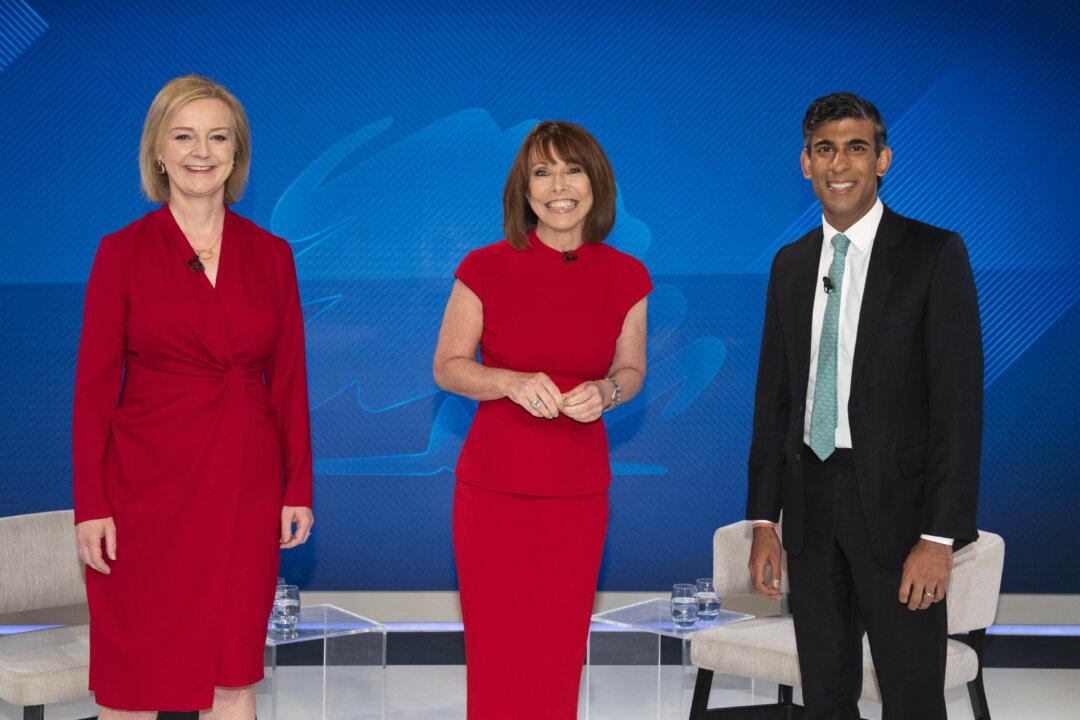The Bank of England’s prediction that the UK is heading into recession has yet again brought the next government’s fiscal policy into sharp focus during Thursday’s Conservative leadership debate.
Liz Truss said a recession can be avoided by cutting taxes and attracting investment, while Rishi Sunak said his opponent’s plan will “put fuel on the fire” of the runaway inflation.





